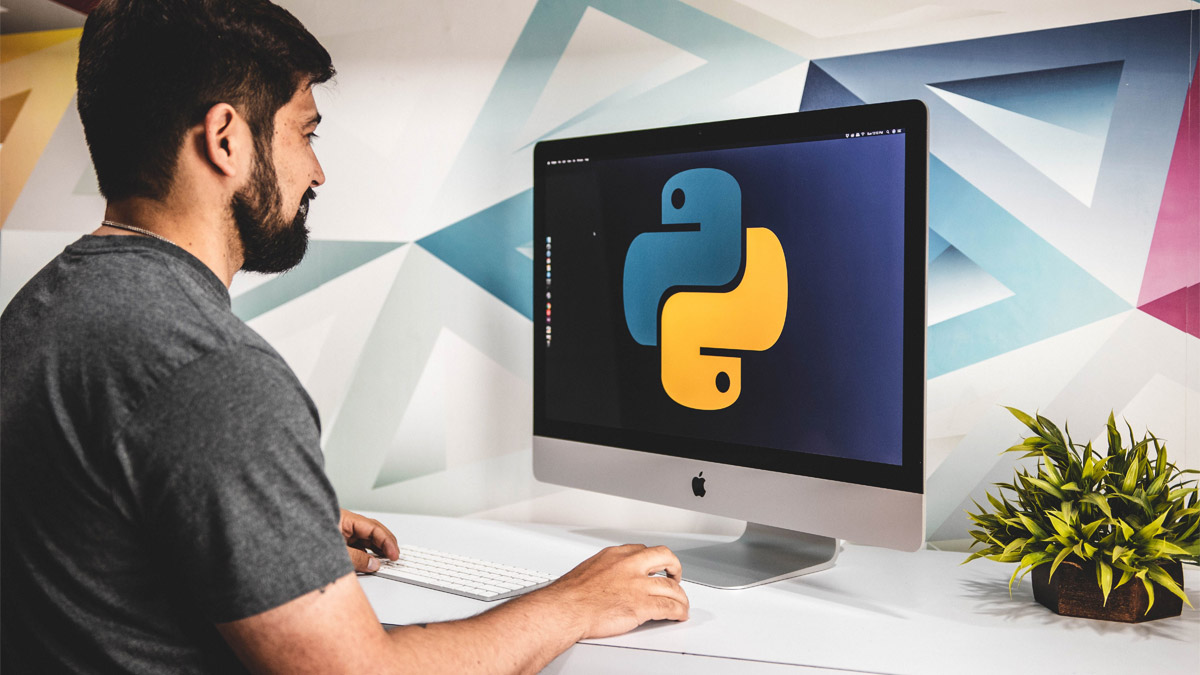Introduction
Python is one of today’s most popular programming languages, noted for its simplicity and adaptability. Whether you’re a newbie or an experienced developer, preparing for a Python interview might be intimidating. Understanding the typical questions that arise is critical for success. In this article, we’ll look at the top 15 Python interview questions to help you prepare for and stand out in your next interview. These questions will test your knowledge and problem-solving skills, covering everything from fundamental ideas to more complex issues.
1. What is Python?
Python is a high-level, interpreted programming language renowned for its simplicity and readability. Python, created by Guido van Rossum and first released in 1991, covers a variety of programming paradigms, including procedural, object-oriented, and functional programming.
Why is it asked?
Interviewers frequently begin with this basic question to assess your knowledge of Python as a language and its core features.
2. What are Python's key features?
Some of Python’s most notable features are:
Syntax: Simple and easy to read, Syntax is easy to learn and utilise also.
Dynamically typed: No need to specify variables.
Interpreted Language: Python is an interpreted language, meaning that code is run line by line.
Cross-platform: Runs on a variety of operating systems, including Windows, MacOS, and Linux.
Extensive libraries: Python provides a robust set of libraries and frameworks.
Why is it asked?
Interviewers want to know if you grasp what makes Python distinct and appealing as a programming language.
3. What is PEP 8, and why is it important?
PEP 8 provides a style guide for writing Python code. It specifies conventions for developing code that is clean, readable, and consistent. Following PEP 8 ensures that Python code is easy to maintain, even while working in a team.
Why is it asked?
This question examines your understanding of Python best practices as well as your commitment to developing maintainable code.
4. What is the difference between lists and tuples in Python?
- Lists: Mutable (can be changed), defined using square brackets [].
- Tuples: Immutable (cannot be changed), defined using parentheses ().
Example:
python
Copy code
my_list = [1, 2, 3] # List
my_tuple = (1, 2, 3) # Tuple
Why is it asked?
Interviewers want to gauge your understanding of Python’s data structures, and when to use one over the other.
5. What are Python decorators?
A decorator is a function that modifies the behaviour of another function or method. It lets you wrap another function to extend or alter its behaviour without permanently changing it.
Example:
Python
Copy code
def my_decorator(func):
def wrapper():
print(“Before the function”)
func()
print(“After the function”)
return wrapper
@my_decorator
def say_hello():
print(“Hello!”)
Why is it asked?
This question assesses your knowledge of higher-order functions and functional programming principles in Python.
6. Explain Python’s Global Interpreter Lock (GIL)
The Global Interpreter Lock (GIL) is a mutex that protects access to Python objects, preventing multiple threads from executing Python bytecodes simultaneously. The GIL ensures thread safety but can be a bottleneck in CPU-bound multithreading applications.
Why is it asked?
Interviewers use this to test your understanding of Python’s threading model and its impact on performance.
7. What is the difference between deepcopy and copy in Python?
- copy.copy(): Creates a shallow copy, copying only the references of objects.
- copy.deepcopy(): Creates a deep copy, copying the object along with the objects inside it.
Example:
Python
Copy code
import copy
my_list = [[1, 2, 3], [4, 5, 6]]
shallow_copy = copy.copy(my_list)
deep_copy = copy.deepcopy(my_list)
Why is it asked?
This tests your knowledge of memory management and how Python handles object references.
8. How are arguments passed in Python: by reference or by value?
In Python, arguments are passed by object reference. If you pass a mutable object (like a list), changes made inside the function will affect the original object. If you pass an immutable object (like an integer or string), changes will not affect the original object.
Why is it asked?
This question helps interviewers understand your grasp of Python’s memory handling.
9. What are Python comprehensions?
Comprehensions provide a concise way to create lists, dictionaries, and sets in Python. They are easier to write and read than traditional loops.
Example:
python
Copy code
squares = [x**2 for x in range(5)] # List comprehension
Why is it asked?
Interviewers want to see how comfortable you are with Python’s expressive features and your ability to write concise code.
10. What is a lambda function in Python?
A lambda function is a small, anonymous function defined using the lambda keyword. It can have any number of arguments, but only one expression.
Example:
python
Copy code
multiply = lambda x, y: x * y
print(multiply(2, 3)) # Output: 6
Why is it asked?
This question checks your understanding of functional programming and anonymous functions.
11. What is the purpose of the self keyword in Python classes?
In Python, self refers to the instance of the class. It is used to access variables and methods that belong to the class.
Why is it asked?
This tests your understanding of object-oriented programming and how classes are constructed in Python.
12. What is the difference between ‘is’ and ‘==’ in Python?
- is: Checks if two references point to the same object.
- ==: Checks if two objects have the same value.
Example:
python
Copy code
a = [1, 2, 3]
b = [1, 2, 3]
print(a == b) # True
print(a is b) # False
Why is it asked?
This tests your understanding of Python’s object model and reference handling.
13. What is ‘exception handling’ in Python, and how do you implement it?
Exception handling is used to manage errors in Python.
You can handle exceptions using the try, except, finally, and else blocks. It ensures that your program continues to run even when it encounters an error, instead of crashing.
Example:
python
Copy code
try:
result = 10 / 0
except ZeroDivisionError:
print(“You cannot divide by zero!”)
finally:
print(“This will always execute.”)
Why is it asked?
This question evaluates your ability to handle runtime errors effectively, a crucial aspect of robust programming.
14. What are Python generators, and how do they differ from normal functions?
Generators are a special type of function that return an iterator and allow you to iterate over a sequence of values. They use the yield keyword to return values one at a time, maintaining their state between calls.
Example:
python
Copy code
def my_generator():
yield 1
yield 2
yield 3
gen = my_generator()
print(next(gen)) # Output: 1
print(next(gen)) # Output: 2
Why is it asked?
This tests your knowledge of memory-efficient techniques in Python, as generators are used for lazy evaluation, generating values on the fly instead of storing them all at once.
15. Explain the use of the ‘with’ statement in Python
The ‘with’ statement simplifies exception handling by encapsulating common try-except-finally patterns in a concise form. It is often used with file handling, ensuring that resources like file streams are properly managed.
Example:
python
Copy code
with open(‘file.txt’, ‘r’) as file:
content = file.read()
Why is it asked?
This demonstrates your understanding of context management and resource allocation, which is essential for writing clean and efficient Python code.
Conclusion
Preparing for Python interviews can be intimidating, but familiarising yourself with these top 15 Python interview questions will give you a solid foundation. From basic syntax and data structures to more advanced concepts like generators, decorators, and exception handling, mastering these topics will boost your confidence and improve your chances of acing the interview.
Good luck with your preparation, and remember, practice makes perfect!
FAQs
Python interviews frequently evaluate candidates’ basic programming skills as well as their ability to use Python to solve problems in the real world. A candidate’s comprehension of the language’s grammar, fundamental ideas, and real-world applications should be evaluated by employers. The following are a few of the most typical Python interview questions:
- Data types and structures – e.g., What is the difference between a list, a tuple, and a set?
- Functions and scope – e.g., What are Python’s default arguments, and how are they used?
- Object-Oriented Programming (OOP) – e.g., What are classes, objects, inheritance, and polymorphism in Python?
- Error handling – e.g., How does Python handle exceptions?
- Libraries and frameworks – e.g., Which Python libraries are you most comfortable using and why?
- Python’s memory management – e.g., How does Python handle garbage collection?
- Practical coding tasks – writing a function, debugging a piece of code, or optimising a script.
In order to verify that applicants can both explain and apply Python principles, these questions usually mix theoretical knowledge with practical coding assessments.
These are the top 5 Python interview questions you need to be ready for if you are pressed for time and wish to prioritise:
- What distinguishing characteristics of Python make it so well-liked?
- What distinguishes Python’s mutable and immutable data types?
- How are trash collection and memory management handled in Python?
- Explain Python’s Global Interpreter Lock (GIL).
- Create a Python method to address a basic coding issue.
Candidates can prepare for these five by studying both theory and practice, which are frequently the main components of Python interview evaluations.
Interviews for a junior developer position typically concentrate more on the essentials than on complex performance optimisation. Companies look for applicants that can pick things up fast and have a strong foundation. Typical enquiries include the following:
- Basic syntax and concepts – What is the difference between Python 2 and Python 3? or What are Python’s data types?
- Control flow – How do you use if-else statements and loops in Python?
- Functions – How do you define a function, and what is the difference between return and print?
- Data structures – When would you use a list vs. a dictionary?
- Error handling – What is the purpose of try-except blocks?
- Practical coding challenges – writing short scripts to manipulate strings, search for elements in a list, or perform simple calculations.
Additionally, scenario-based questions such as these may be asked in junior-level interviews:
- How would you read a file in Python?
- How can you check if a number is prime?
- How do you remove duplicates from a list?
The ability of the candidate to apply theoretical knowledge to straightforward but practical tasks is ensured by such questions.







